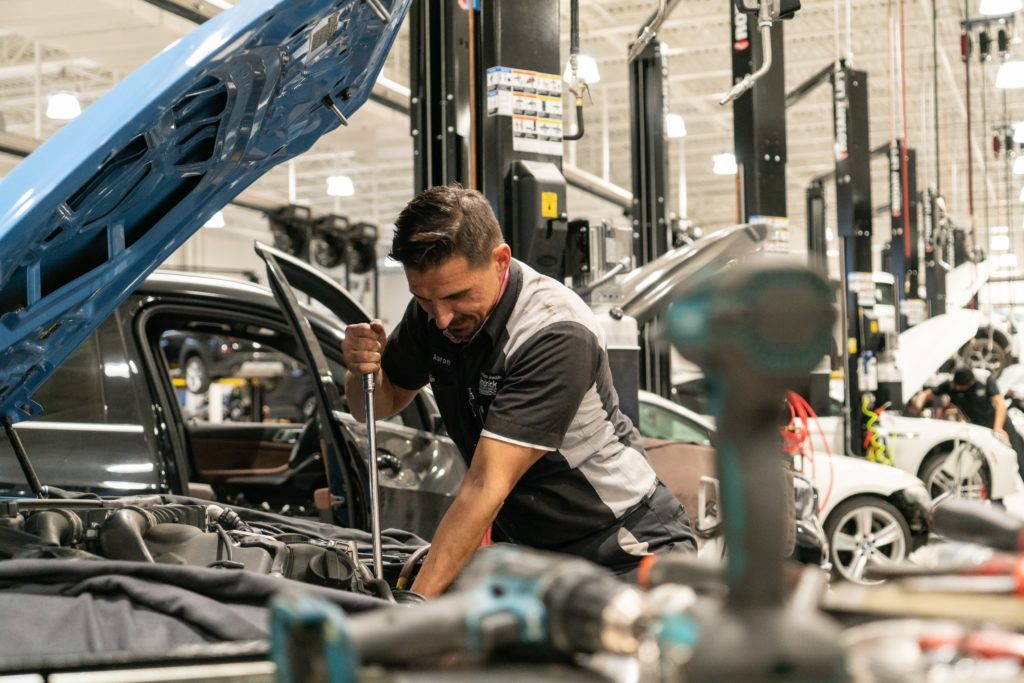Sponsored content brought to you by BMW of South Austin

A mechanic bill is like a hospital invoice—feels inflated, always hated. While your body may need a bandage, a good diet can mitigate long-term health problems. Are vehicles so different? Not really. A well-oiled machine, like a healthy body, gives almost no worry to its owner. But how long can a person claim health when deprived of food, clean water or exercise? The key to longevity, then, is preventative maintenance, especially if you decide to keep your machine past its initial warranty period. So, how long should you ignore the warning lights on your car’s dash?
Vehicles have come a long way since their inception, and so have the ways to prolong the life of your daily ride. Take full-synthetic oil, which lubricates better, lasts longer, is cleaner and is more adept to handle extreme temperatures. Think of this like cooking with olive oil as opposed to vegetable oil. Oils with high smoke points don’t break down as quickly as the cheaper ones, which cause buildup and oxidation that accelerates the wear on important components. The same principle holds true here. Better oil = better outcome. Modern cars typically are safe at the 3000- to 5000-mile change mark, with 5K becoming the norm. (BMWs and other German cars can go 10K.)
What if your car has seen more seasons than there are of Grey’s Anatomy? While not unusual for older cars (above 75K miles) to leak oil at some point, it can be prevented. Just like a hydrating facial mask can plump up our skin, diminishing fine wrinkles, high-mileage oil features additives that restore the elasticity of engine seals, which begin to crack with age. If left unchecked, this can lead to premature wear, a fire or cause your vehicle to fail without warning.
Another key to preventative maintenance is switching out your air filter every time you get an oil change. Doing so will help keep your car running at peak efficiency, improve acceleration, and reduce emissions. On top of that, a clean air filter can extend the life of your vehicle’s sensors and even keep pollen and mold at bay—nasty stuff that can seep into your vehicle’s cabin leading to severe health problems and worsening allergies.
Do you need a tire rotation? How about a wheel alignment? Abso-heckin-lutely! Before tossing out an old pair of Adidas, pay attention to the heel area. Both shoes usually have extensive wear to the outer rear heel area; that’s what happens to tires, except the trick with tires is that you can rotate them to get even wear. Uneven tires can be dangerous for you as a driver as it could lead to a blowout while on the road. To a lesser degree, uneven wear makes for a poor driving experience from a comfort level. A general rule of thumb is to get your tires rotated with each service and get an alignment done every year to ensure even wear. After all, you want your tires to last as long as advertised.
One seemingly minor factor is fuel. What octane level should you be using? What do the numbers beside the fuel pumps mean? Is there a difference between fuel qualities? The answer to the first question is usually found on your vehicle’s gas cap or door. You’ll typically see the options ranging from 87 to 91 to 93. The higher the number, the higher the octane rating. Octane rating is basically how forceful the combustion is inside of the engine.
Most domestic vehicles require regular fuel (87), while some imported vehicles like BMW and Mercedes require higher force (93). Now, is there a difference in quality? Some fuel stations continuously post lower prices for their fuel, so is there a problem with only putting the cheapest fuel you can find for your car? If you own a vehicle with direct injection, using Top Tier gasoline is preferred. Top Tier Gas has additives (hey, just like high-mileage oil) like detergents that keep your cylinders clean. A little investment can translate to a big ROI.
While playing maintenance chicken with your car may seem like you’re living on the edge, consequences of negligence or use of cheap materials may cause far bigger headaches like terrible fuel efficiency or a depleted coin purse. Even if you decide to lease, warranties are still conditional on proper maintenance. The smartest course would be to factor in a maintenance or service plan when you purchase your vehicle to take advantage of the built-in discounts as well as locked-in prices that hedge against inflation. Take your car’s needs into consideration. Doing so will show your car how much you appreciate it, and then you can turn up the volume and sing to that Rick Astley song you and your car love so much.

